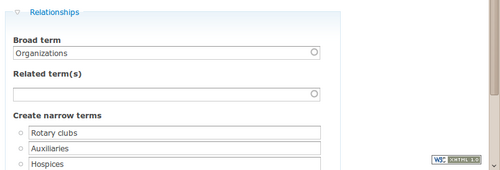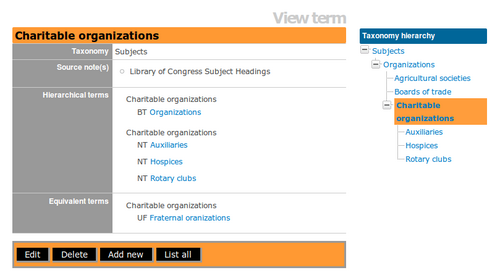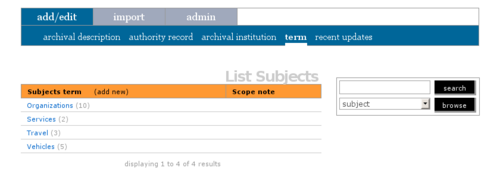Difference between revisions of "Hierarchical taxonomies"
Jump to navigation
Jump to search
| Line 13: | Line 13: | ||
<li> | <li> | ||
| − | <p> | + | <p>Build a hierarchy by selecting a Broad Term (BT) for the term you are editing, by entering any number of Narrow Terms (NT), or both. Select Related Terms (RT) if desired. When you are finished, click the Save button in the [[Glossary#Button block|button block]]. |
<li> | <li> | ||
| − | |||
| − | |||
| − | |||
| − | |||
<li> | <li> | ||
Revision as of 14:31, 23 June 2010
Please note that ICA-AtoM is no longer actively supported by Artefactual Systems.
Visit https://www.accesstomemory.org for information about AtoM, the currently supported version.
Main Page > User manual > Add/edit content > Add/edit terms > Hierarchical taxonomies
The term edit page includes a special section that allows the user to create hierarchical thesauri in accordance with ISO 2788.
- In the term edit page, open the relationships information area.
-
Build a hierarchy by selecting a Broad Term (BT) for the term you are editing, by entering any number of Narrow Terms (NT), or both. Select Related Terms (RT) if desired. When you are finished, click the Save button in the button block.
-
Save the record. In the term's view page you will see the term and all its relationships to other terms, as well as an expandable hierarchy in the context menu on the right of the page.
- The taxonomy's list page shows a list of all top terms and the number of descendants for each term.


